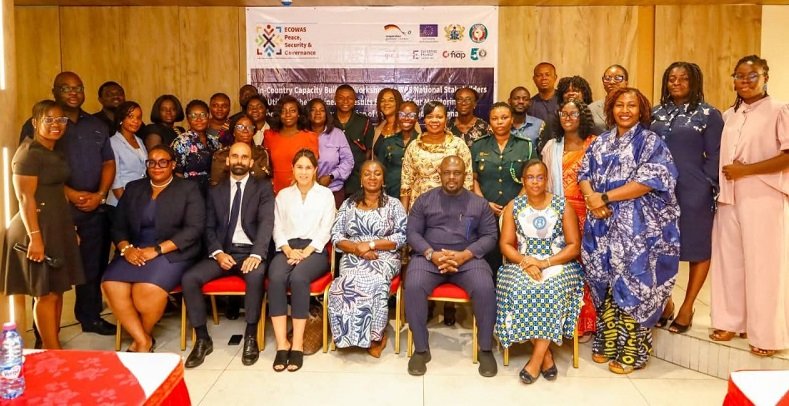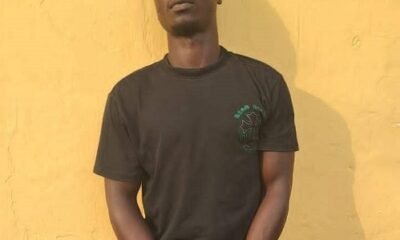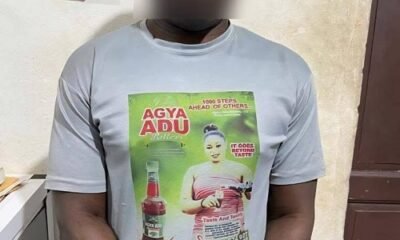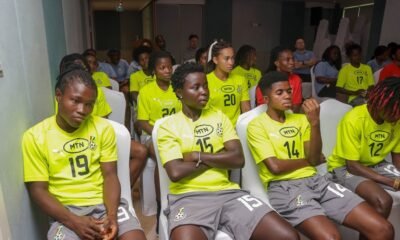News
3-Day in-country capacity building workshop on Women, Peace and Security Reporting Frame Work held

In 2018, the African Union developed the Continental Results Framework (CRF) to track the implementation of the Women, Peace and Security (WPS) agenda across Africa.
To support this regional effort, ECOWAS introduced a simplified version of the CRF in 2022 to guide member states in implementation and reporting.
As part of a broader regional effort to build national capacity across member states, the ECOWAS Commission, through its Directorate for Humanitarian and Social Affairs (DHSA), and in collaboration with relevant stakeholders and the WPS Regional Steering Group—with technical and financial backing from the ECOWAS Peace, Security and Governance Project (EPSG), co-funded by the European Union and the German Federal Ministry for Economic Cooperation and Development (BMZ), and implemented by GIZ—organized a three-day in-country capacity-building workshop in Ghana.
Held from June 10 to 12, 2025, the workshop was spearheaded by the Ministry of Gender, Children and Social Protection in collaboration with the European Union, the German Embassy, and the ECOWAS Commission.
It aimed to enhance the technical capacity of national stakeholders and focal persons to systematically document, monitor, and report on WPS interventions, particularly in relation to Ghana’s National Action Plan on United Nations Security Council Resolution 1325 (GHANAP II).
The training also focused on improving data accuracy, promoting inter-agency collaboration, and ensuring Ghana’s reporting processes align with the ECOWAS Simplified CRF.
Speaking on behalf of the Minister for Gender, Children and Social Protection, Dr. Agnes Momo Lartey, the Director of the Department of Gender, Madam Faustina Acheampong, described the workshop as “timely and appropriate,” noting its significance in strengthening Ghana’s WPS reporting architecture.
She further stressed the importance of accurate data and coordinated efforts to meet the country’s regional reporting obligations.
She also underscored the critical role of women in peacebuilding, emphasizing the need to amplify women’s voices and ensure their full participation in peace processes to achieve lasting, inclusive peace in Ghana.
Representing the ECOWAS Commission’s Directorate of Humanitarian and Social Affairs, Mr. Olatunde Olayemi reaffirmed ECOWAS’s commitment to Ghana’s WPS agenda. He highlighted the disproportionate impact of insecurity on women and girls and praised Ghana’s ongoing efforts to advance inclusive peacebuilding as a cornerstone for sustainable development.
Daniel Messina, from the European Union Delegation to Ghana, acknowledged the role of the ECOWAS Peace and Security Architecture and Operations (EPSAO) Programme—funded by the EU and German Government—in promoting peace, security, and gender equity across the region.
Additionally, Pauline Okkens, Political Advisor at the German Embassy, reiterated her government’s continued support for the development and implementation of continental and regional frameworks on Women, Peace and Security.
News
Man sentenced to 25 years for robbery at Manso Akwasiso

A 30-year-old man has been sentenced to 25 years imprisonment with hard labour by the Bekwai Circuit Court for his role in a 2022 robbery at a mining site at Manso Akwasiso in the Ashanti South Region.
The convict, Dominic Ofori, also known as Fanta, was arrested on 16th February 2026 after years on the run. He pleaded guilty before the Bekwai Circuit Court to robbery contrary to Section 149 of the Criminal Offences Act, 1960 Act 29, and was accordingly sentenced to 25 years imprisonment with hard labour.
On March 20, 2022, the Manso Adubia District Police received intelligence that a group of armed men from Manso Abodom were planning to attack a mining site at Manso Akwasiso to rob the owner of gold concentrate. Acting on the information, police mounted a coordinated operation and laid an ambush at the site.
At about 5:30 pm the same day, four-armed men arrived at the site, fired indiscriminately, and robbed the miners of their gold concentrate. The police team on surveillance intervened, resulting in an exchange of gunfire.
Three of the suspects, Abu Abubakar, Musah Latif, and Gideon Takyi, sustained gunshot wounds and were pronounced dead on arrival at St Martins Catholic Hospital at Agroyesum. Dominic Ofori escaped at the time but was later arrested and put before the court.
The Ashanti South Regional Police Command has assured the public of its continued commitment to combating violent crimes and bringing offenders to justice.
News
Ashanti police arrest man for publishing false news on TikTok

The Ashanti Regional Police Command has arrested 45-year-old Isaac Boafo, also known as “Duabo King,” for allegedly publishing false news intended to cause fear and panic.
Police said the arrest follows a viral TikTok video in which Boafo claimed that four officers at the Central Police Station in Kumasi engaged in inappropriate conduct with commercial sex workers during night patrols in Asafo.
Officers from the Police Intelligence Directorate (Ashanti Region) apprehended Boafo after receiving intelligence about the video.
During questioning, he admitted to creating the video to attract views and engagement online, and acknowledged that he could not prove the allegations.
Boafo also admitted making comments about the President of the Republic for content purposes and could not defend those statements.
He has been formally charged and is in detention as investigations continue.
The Ashanti Regional Police have warned the public against publishing or sharing false information on social media, noting that such acts can cause fear, panic, and damage reputations.
They said anyone found engaging in similar conduct will face legal action.
By: Jacob Aggrey














